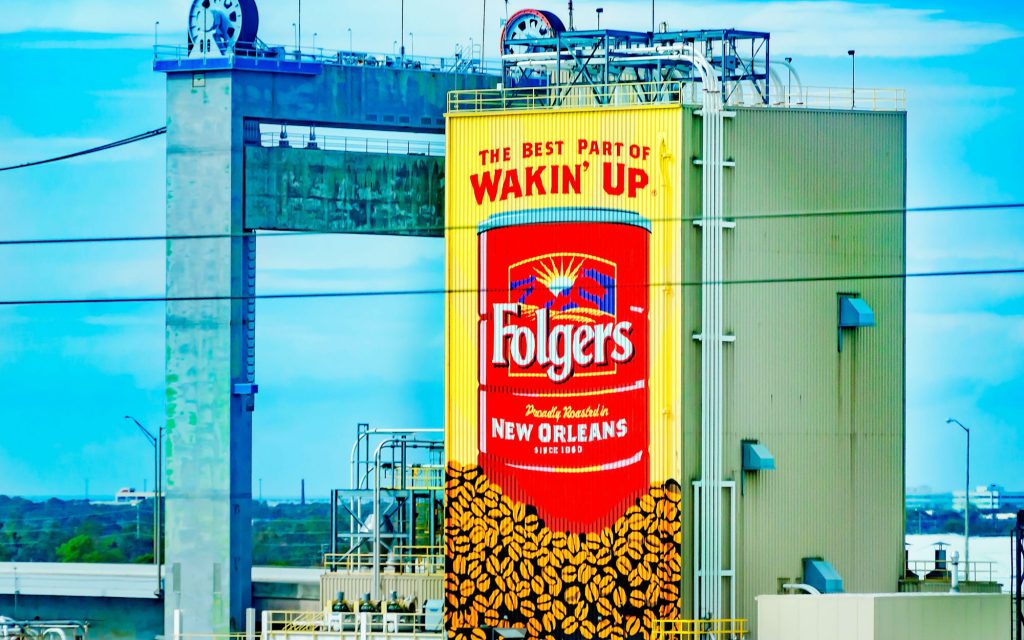How have career opportunities changed in specialty coffee?

We’ve seen many changes in the specialty coffee sector over the last ten or so years. From the rise of plant milks to an increasing adoption of automated solutions to a bigger focus on sustainability, specialty coffee always seems to be evolving.
In line with this, career options have also changed. Job roles which were once more clear-cut – such as baristas and roasters – have now become more nuanced. At the same time, career prospects have broadened in scope, with more opportunities to work in the sector than ever before.
To better understand how career options have changed in specialty coffee, I spoke with Jamie Galloway, Managing Director at Foundation Coffee in New Zealand. Read on to find out what he had to say.
You may also like our article on where coffee roasters go after being a head roaster.
How has specialty coffee changed?
Although the term “specialty coffee” was first coined in the early 1970s by Norwegian Erna Knutsen, it was only throughout the late 1990s and early 2000s that the specialty coffee sector became more established.
Scandinavian roasters helped pioneer the market during this period, as well as a number of leading US roasters like Stumptown, Counter Culture, Blue Bottle, and La Colombe.
As part of the third wave movement, roasters were much more focused on sustainable business practices. Some of these included:
Working more closely with producers
More transparency around sourcing and buying coffee
Paying a premium for higher-quality coffees
Alongside these practices, third wave coffee culture also had a much bigger focus on the craft and skill of roasting and brewing coffee. Moreover, single origin coffees became much more popular.
Ultimately, these changes have hugely influenced job roles and career opportunities in the coffee sector – particularly for roasters and baristas. Over the years, coffee professionals’ skill sets and knowledge have grown immensely, which has helped to change perceptions of what it means to work in specialty coffee.
The barista becomes more prominent
Traditionally speaking, the role of the barista was largely centred around providing excellent customer service. And while it still is today, now more than ever, there is a huge focus on preparing high-quality coffee.
Among other hard and soft skills, baristas need to have solid technical knowledge of how to prepare a range of different coffees as both espresso and filter.
Moreover, baristas also need to be able to share information about coffee to consumers. In previous years, many customers weren’t necessarily interested in knowing more about factors such as origin, varieties, and processing methods. In turn, most baristas weren’t particularly knowledgeable about the coffee supply chain themselves.
Fast forward to today and baristas working in specialty coffee shops should be able to explain a wide range of information about coffee. This includes common sensory profiles for different origins and what washed processing is, for instance.
But beyond the necessary skills and knowledge, wider perceptions of the barista job role have changed significantly in recent years. In some countries around the world, rather than being seen as a “stop gap” job position, working as a barista in specialty coffee is considered part of a longer career path.
As a result, there are now more career progression opportunities for baristas – especially when they receive the right level of support and investment from employers.
Reliance on technology
As with many other job roles in the coffee industry, technology has changed the ways in which baristas work.
“With recent labour challenges, it’s been difficult to hire baristas with more well developed skill sets,” Jamie says. “To assist with these challenges, we use solutions like Café Assist.”
Baristas now have access to a greater range of technologies and automated solutions which support them in their job roles – and even reduces the need for more repetitive tasks. Some of these include automated milk foaming systems and tampers, which can improve both workflow and beverage quality.
How has the roaster’s job role changed?
Twenty or so years ago, most roasters were considered to be similar to any other business. This was largely because dark roast profiles were much more popular during this time.
Today, however, with a much broader range of roast profiles which showcase the innate qualities of coffee, the craft of roasting is appreciated by many consumers the world over.
In line with the sustainable values of the third wave movement, the working relationship between roasters and producers (as well as exporters) has changed significantly. In theory, through direct trade models, more trust can be built between these supply chain actors – thereby helping to create a more transparent and equitable coffee industry.
Furthermore, roasters now have more information about their coffees, which they can also share with wholesale clients and consumers.
It often takes years to master the skills needed to roast a range different coffees – especially when we factor in the different origins, varieties, and processing methods now commonly available. Among this, roasters also have to learn how to do a number of other tasks, such as:
Scheduling batches of coffee to be roasted
Managing and leading quality control processes
Profiling and cupping coffees
Green and roasted coffee stock management
Dispatching orders
“Similar to baristas, the role of the roaster has expanded,” Jamie tells me. “Roasters are now often involved in a wider range of tasks related to running their business.”
These can include managing wholesale clients, being more involved with marketing and branding, and hosting educational classes or workshops.
Technology is a roaster’s best friend
Compared to the tech-driven machines of today, traditional roasting techniques were more hands on. Roasters had to rely on visual and audio cues to assess roast profiles, which increased the likelihood of inconsistencies and under or overdevelopment.
Over the last decade, however, roasting technology has become much more advanced. This has given roasters more room to experiment with different roast profiles – and ultimately improve coffee quality.
Many modern machines now utilise artificial intelligence (AI), which gives roasters more control over different roasting variables. As AI can detect key stages of roast development, such as first crack, arguably more precisely and consistently than humans can, this has helped to create more specific and precise roast profiles which better express the coffee’s qualities.
Given the level of support that technology can provide, many roasters are now able to offer a broader range of products which suit consumers’ different taste preferences. These range from light roast single origin coffees to high-quality blends.
How could careers in specialty coffee evolve in the future?
As with the ever-changing nature of the specialty coffee sector, it’s inevitable that career opportunities will continue to evolve, too.
Jamie believes that as coffee professionals are likely to extend their skills beyond their own roles in the sector, we’ll see a greater range of career opportunities in the future.
For example, baristas are likely to become more involved in management and training duties, or may even start to engage more with content creation for coffee shops and other brands. These positions can be useful ways to educate consumers in a more informal way.
Education is sure to remain a top priority for baristas and roasters, as well as other coffee professionals. This means that opportunities for learning and professional development are essential for those looking to branch out into coffee education.
In turn, this would allow baristas and roasters to help bridge the gap between producers and consumers even further.
When it comes to roasting, technology is sure to pave the way for further career development.
“Technology-driven coffee roasting is already commonplace, as is the need to be more aware of the cost of green beans,” Jamie says. “There is also an increased awareness of the costs associated with roasting, so with this will come a greater level of accountability for working more efficiently within a coffee business.”
As the price of coffee has been particularly volatile in the last two to three years, roasters now have to consider a wider range of factors when operating their business.
Additionally, a greater focus on technology will be sure to change – and potentially improve – a number of tasks for roasters and baristas, particularly automating repetitive tasks and optimising workflow.
The importance of career progression
In any industry, career progression is essential for job satisfaction. The same goes for specialty coffee, as most coffee professionals are regularly looking for ways to learn more and improve their skills.
Moreover, picking up more skills can also help roasters and baristas diversify their income – they may pivot to hosting educational classes or workshops, for instance.
However, it can be daunting looking for new job opportunities which are in line with a professional’s experience level, as well as their career aspirations.
A good place to start is by looking at industry-specific job boards, such as PDG Jobs, which hosts listings from some of the most established brands in the specialty coffee sector. This job board posts listings for a wide range of positions in the coffee industry, from barista to green coffee buyer and anything in between.
If coffee professionals want to grow within the industry, finding a role which provides career progression and growth is imperative.
“Recruiting skilled staff remains difficult, so without a tailored career progression plan in place, employees may look elsewhere for progression opportunities,” Jamie explains.
The specialty coffee industry has changed significantly over the last few decades. Naturally, this has also led to a shift in career opportunities – and they are sure to change more in the coming years.
But finding these job opportunities can be challenging at the best of times. Platforms like PDG Jobs, however, are always a good place to start for any coffee professional looking to further their career.
Looking for new positions in the coffee industry? Check out PDG Jobs here.
Perfect Daily Grind
Want to read more articles like this? Sign up for our newsletter!
The post How have career opportunities changed in specialty coffee? appeared first on Perfect Daily Grind.





Responses